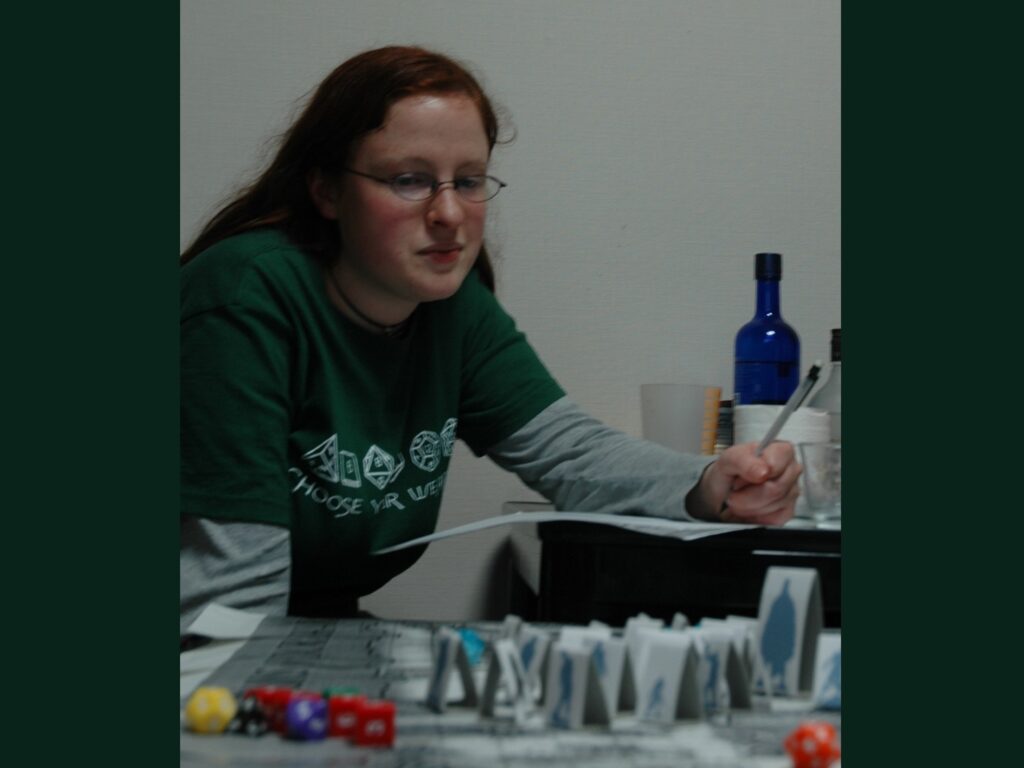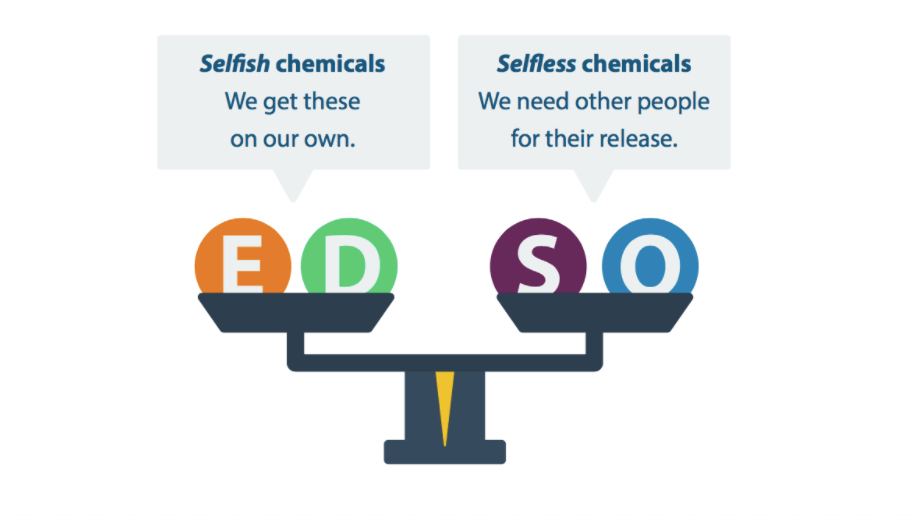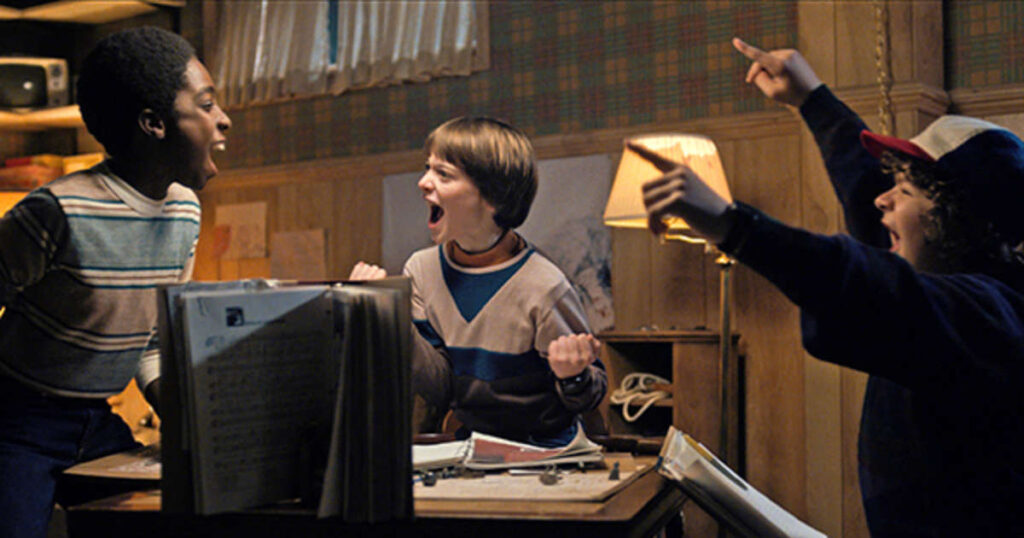Part 1 – Setting the Table
Quarantine has been a long haul so far, and now we’re looking at several more months of social isolation paired with cold, dark weather, which is depressing to consider. Over these last few months, people I know have started new projects and hobbies, adopted new pets, and taken more intentional steps to reach out to friends and family virtually.
Coming into fall this year, I received two separate invitations to join friends (one set from college, one from grad school) as they set up groups to play Dungeons & Dragons. Coincidentally (or not) another friend recently sent me an interesting article about how therapists have started using roleplaying games, such as D&D, as a tool for young adults dealing with communication issues and trauma recovery.[1]
D&D has a very special place in my heart because it helped me connect with others at a time in my life when I was feeling particularly isolated, but now it seems there may be legitimate medical benefits to playing, especially in troubled times.

D&D Gameplay
Dungeons & Dragons is a group role-playing game, set in a fantasy world. The first edition of the game, which was released in 1974, was heavily influenced by Lord of the Rings,[2] hence the presence of elves, orcs, and dragons. Since then, D&D has evolved through multiple editions of game structure and rules, and various companies have released similar games in a variety of settings (usually fantasy or science fiction). The beauty of this type of game is that it is team-focused, collaborative, and creative.[3]
D&D, at its simplest, is played with pencils, paper, and dice. More elaborate setups include a board and figurines to help the players visualize the dimensions of a room and where everyone is located in relation to each other, but the bulk of the game is still played inside your mind. To play, a group needs a Game Master who can describe the world and guide the players through a series of challenges. These challenges could be anything from finding a lost treasure in a dungeon to protecting a village from invading monsters. Regardless of the challenge put forth, it is the group, not an individual, that succeeds or fails.
Each player in the group creates a character to play, selecting a race (human, dwarf, elf, etc.), a class (ranger, fighter, monk, etc.), and specific equipment and skills. Different races have different attributes (e.g. dwarves are strong, elves are nimble), just as classes indicate an area of learned expertise where someone might display proficiency, such as hunting or healing. Ideally the characters will represent a range of options in these areas because diversity within a party leads to greater success through teamwork. Over time, the players in a party learn each other’s skills and abilities, and they are able to coordinate with each other and better develop strategies for solving problems.

Image credit: [4]
Individual characters’ natural abilities and learned skills have number values assigned to them – and that is where the dice come in. When encountering a challenge, whether shooting an arrow, picking a lock, or haggling over boat fare to cross a river, the player must roll the dice to determine her success. The challenge is assigned a number value that must be reached in order to succeed, and when the player rolls the dice, she adds factors that increase her chances of success (maybe she has a natural skill) and/or subtracts factors that limit her chances of success (maybe she’s tired). Although a character may have natural abilities and learned skills that point to success in a task, the dice keep the element of chance present, and players need to be ready with Plans B, C, and D.
Any good D&D campaign hinges on a skilled storyteller as the Game Master, and I’ve been fortunate over the years to play in some fantastic campaigns led by creative individuals who were good at blending excitement and challenge. And it was in situations like these that I benefited as an individual – yes, my character gained experience points; yes, the party succeeded in its quest; but I, Alison, gained valuable skills as well, such as learning how to rely on a team.
The Brain Chemistry of Teamwork
In his book Leaders Eat Last,[5] Simon Sinek describes the four feel-good chemicals released by our brains. The first two are based on individual actions, and the second two are based on community interactions:
- Endorphins mask physical pain, such as when you’re running long distances, a.k.a the runner’s high
- Dopamine is the feel-good chemical released when you’ve achieved a goal (slot machines and social media platforms are designed to make use of dopamine’s addictiveness)
- Serotonin is the pride we feel when others achieve success and/or when someone feels pride in us; it reinforces the bonds of connection in a support network
- Oxytocin is the chemical for love, friendship, and deep trust; wanting to do something nice for someone else and feeling good when someone does something for us

Image credit: [6]
As an only child and an only grandchild on my mother’s side, I have spent my life in the spotlight, accomplishing things by myself, and not relying on anyone else for anything except attention and praise. Even the sports I played as a kid (equestrian, archery, and martial arts come to mind) were particularly solitary and didn’t rely on teamwork. I grew up dependent on the dopamine rush of glory in all things, rather than stable comfort of oxytocin that comes with relying on others to help you get the job done and showing up in return for them. Given that, it came as a quite a shock to me when I moved to the other side of the planet and wasn’t equipped to deal with the extreme isolation I felt living in the mountains of northern Japan.
It was during that time that another American expat who lived nearby (a short two-hour drive east) asked if anyone was interested in getting a D&D game together. I had never played before, but I was curious, homesick, and desperate for social interaction. The players in our group were spread out geographically, so we got together once every few months for marathon gaming sessions at someone’s apartment, all of us spending the night and continuing to play the following day.
I loved the experience of getting together with friends on a regular basis, but I bonded better with my fellow players than my character did with her fellow party members. She was solitary and stubborn, used to taking care of herself and always having something to prove. Whether by our Game Master’s design or just by luck of the dice, my character was rarely able to succeed without relying on the other members of the party for assistance, which was an uncomfortable situation for her (and me).
~
Tune in next week for part two, which will provide more detail about the psychological and physiological benefits of building diverse teams, achieving victories together, and processing emotions through a creative medium. Until then, I’d love to hear any stories you have about your positive experiences with D&D or other role-playing games.
Thanks for reading!
[1] https://kotaku.com/therapists-are-using-dungeons-dragons-to-get-kids-to-1794806159
[2] https://www.goodreads.com/book/show/33.The_Lord_of_the_Rings
[3] https://en.wikipedia.org/wiki/Dungeons_%26_Dragons
[4] https://simonsinek.com/product/create-a-circle-of-safety-edso-in-action/
[5] https://www.goodreads.com/book/show/16144853-leaders-eat-last
[6] https://www.thrillist.com/news/nation/stranger-things-dungeons-and-dragons
0 Comments